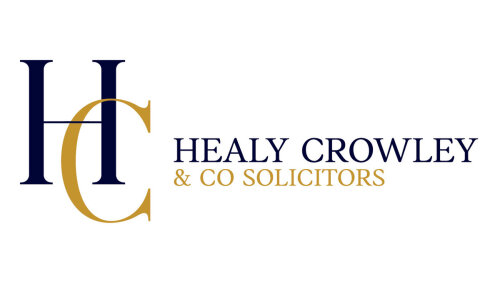Best Nonprofit & Charitable Organizations Lawyers in Ireland
Share your needs with us, get contacted by law firms.
Free. Takes 2 min.
Or refine your search by selecting a city:
List of the best lawyers in Ireland
About Nonprofit & Charitable Organizations Law in Ireland
Nonprofit and charitable organizations in Ireland operate within a distinct legal framework that facilitates the pursuit of charitable goals while ensuring transparency and accountability. These organizations are a vital part of Irish society, working across various sectors like health, education, and social services. The legal structure governing these organizations is designed to promote their effective functioning while protecting public trust.
In Ireland, nonprofits can take several legal forms, including unincorporated associations, charitable trusts, and companies limited by guarantee. The Charities Regulator oversees charitable organizations, ensuring compliance with the Charities Act 2009, which is the cornerstone of charity law in Ireland.
Why You May Need a Lawyer
Engaging a lawyer skilled in nonprofit and charitable organization law can be crucial in several scenarios:
- Setting up a new charity or nonprofit organization, ensuring it complies with legal requirements from the outset.
- Understanding and navigating the registration process with the Charities Regulator.
- Drafting or reviewing governance documents, such as constitutions, trust deeds, or articles of association.
- Dealing with tax exemptions and compliance with tax regulations relevant to nonprofits.
- Handling disputes or issues concerning governance, funding, or operations.
- Guidance on fundraising regulations and best practices.
- Addressing concerns related to data protection and privacy laws.
Local Laws Overview
Several key legal aspects specifically influence how nonprofits and charities operate in Ireland:
- Charities Act 2009: Establishes the regulatory framework for charities, aiming to enhance transparency and accountability.
- Registration: Charitable organizations must register with the Charities Regulator and meet ongoing compliance obligations.
- Governance Code: Provides a set of standards guiding charity boards and trustees in good governance practices.
- Tax Law: Includes provisions for tax relief under the Taxes Consolidation Act 1997, vital for financial management in charities.
- Data Protection: Complying with GDPR and the Data Protection Acts is essential for handling personal data.
- Employment Law: Compliance with employment regulations is necessary if the organization employs staff.
Frequently Asked Questions
What is the difference between a nonprofit and a charitable organization?
All charitable organizations are nonprofits, but not all nonprofits are considered charities. Charitable organizations in Ireland must have charitable status and register with the Charities Regulator, while nonprofits might not require this if their purpose does not fit the legal definition of charity.
Do I need to register my nonprofit organization?
While some nonprofits might not require registration, if your organization wishes to avail tax relief or receive public donations as a charity, it must register with the Charities Regulator.
How long does it take to register a charity in Ireland?
The registration process can vary but typically takes several months, contingent upon the completeness and accuracy of your application and documents.
What are the ongoing obligations for registered charities?
Registered charities must submit annual reports, file accounts with the Charities Regulator, and ensure compliance with governance standards.
Can a charity engage in commercial trading?
Charities may engage in trading activities if the trade is primary purpose-related or directly contributes to achieving the charity's objectives.
What tax benefits are available for charities in Ireland?
Charities can obtain relief from certain taxes, such as income tax and capital gains tax, subject to compliance with Revenue guidelines.
How can a charity fundraise legally in Ireland?
Fundraising activities should adhere to legal and regulatory standards, including obtaining necessary permits for events, and should be conducted transparently and ethically.
Are there restrictions on political activities by charities?
Charities must not have a political purpose, although they can engage in certain advocacy activities if they align with and support their charitable objectives.
What is the role of trustees in a charity?
Trustees govern the charity, ensuring it operates in line with its purpose and complies with legal requirements. They have fiduciary duties, requiring them to act diligently and ethically.
How can we change the governing documents of a charitable organization?
Amendments to governing documents may require approval from the Charities Regulator and must align with the charity's objectives, ensuring they do not undermine its charitable status.
Additional Resources
For legal advice and guidance, several resources and organizations can be invaluable:
- Charities Regulator: Offers comprehensive information and guidance on compliance and registration.
- Revenue Commissioners: Provides details on tax relief and benefits available to charities.
- Law Society of Ireland: Can help locate solicitors specializing in nonprofit law.
- Irish Charity Shops Association: Offers insights and support for charity-focused retail operations.
- Wheel: A support and representative network for community and voluntary organizations in Ireland.
Next Steps
If you require legal assistance in the field of nonprofit and charitable organizations, consider the following steps:
- Conduct thorough research to identify lawyers or law firms specializing in nonprofit law in Ireland.
- Prepare a list of your organization's specific needs and legal concerns to discuss with a potential legal advisor.
- Contact professional bodies like the Law Society of Ireland for recommendations on legal experts in your area.
- Schedule consultations to understand fees, experience, and compatibility with the needs of your organization.
- Ensure any legal advisor or firm you engage is well-versed in the applicable Irish laws governing nonprofits and charities.
Taking the time to seek professional legal advice can aid in the successful establishment and operation of a nonprofit or charitable organization within Ireland's legal framework.
Lawzana helps you find the best lawyers and law firms in Ireland through a curated and pre-screened list of qualified legal professionals. Our platform offers rankings and detailed profiles of attorneys and law firms, allowing you to compare based on practice areas, including Nonprofit & Charitable Organizations, experience, and client feedback.
Each profile includes a description of the firm's areas of practice, client reviews, team members and partners, year of establishment, spoken languages, office locations, contact information, social media presence, and any published articles or resources. Most firms on our platform speak English and are experienced in both local and international legal matters.
Get a quote from top-rated law firms in Ireland — quickly, securely, and without unnecessary hassle.
Disclaimer:
The information provided on this page is for general informational purposes only and does not constitute legal advice. While we strive to ensure the accuracy and relevance of the content, legal information may change over time, and interpretations of the law can vary. You should always consult with a qualified legal professional for advice specific to your situation.
We disclaim all liability for actions taken or not taken based on the content of this page. If you believe any information is incorrect or outdated, please contact us, and we will review and update it where appropriate.
Browse nonprofit & charitable organizations law firms by city in Ireland
Refine your search by selecting a city.

















